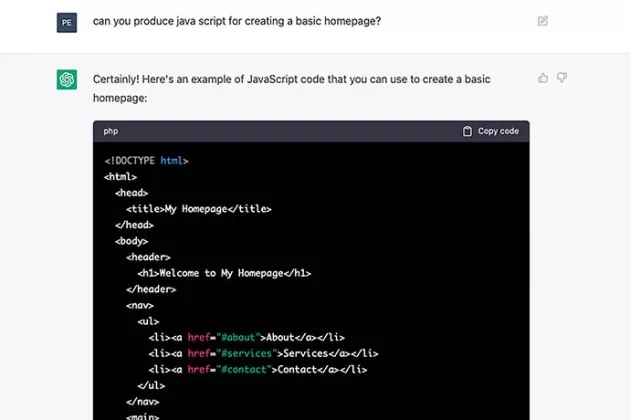Senior Lecturer Blerim Emruli is one of seven educators from around the globe that has been selected to the Qlik Inaugural Professor Ambassador Class. The aim of the class is to celebrate educators helping to create a data-literate world.
Why, in your mind, is data literacy of importance for today’s students, Blerim Emruli?
“As time has passed, businesses have been considerably influenced by data, and in some cases solely driven by data, meaning that organisations are striving for data-informed decision making and working with business intelligence in order to stay competitive. One might think data literacy is only important for market analysts, financial analysts, supply chain analysts, but that is actually not the case nowadays.
Today, the agenda is to push for self-service business intelligence or self-service analytics, which is the process of analysis of data by non-technical staff and departments in the organisation – rather than IT professionals or dedicated IT divisions. Furthermore, based on a recent investigation by LUSEM's Corporate Partnership Foundation that included discussions with some of our partner companies on the topic of ’the future of higher education at Business Schools’, the feedback from the companies was to make sure to increase the focus of the development of courses that combine ’analytics’ with business or economics.”
What drives you as a teacher?
“Many things! Perhaps the key is the impact that teaching and learning have on individuals, society and the world. Specifically, the opportunity to educate young people, watching them acquiring new knowledge and the ability to question, learn and develop specific skills and attitudes. Moreover, a particular thing that drives me as a teacher within the Department of Informatics at LUSEM is the passion that I have about the courses I teach, and the belief I have on their impact. I truly believe that data has the power to transform business and improve society.”
And as a researcher?
“I appreciate the ability and opportunity to question and investigate some of the key problems of society, and focus on those by embracing an interdisciplinary approach and collaborate with a wide range of actors in order to tackle them. In particular, I'm keen on applied research and co-production with the surrounding society, especially within Sweden, the Nordics and EU. Moreover, the task as a researcher to summarize and share the outcomes and results in various venues and forums such as national mass media, international journals, conferences, books, and workshops is something that also drives me in my research work.”
You have recently developed and launched a new course at LUSEM: Business and Artificial Intelligence. What are your expectations on the course and its participating students?
“My expectation is to deliver an introductory course in the Master's in Information Systems. It is an interdisciplinary Master's programme and discipline, accepting students with diverse backgrounds. The course itself is grounded in solid theoretical foundations and guided by practical problems, and will hopefully enable a diverse set of students to develop their first AI-based solutions by using modern and practitioner-oriented tools. Moreover, given the breadth of the subject of AI, another expectation of the course is to bring several perspectives on the same and different topics from a handful of guest lecturers, which as a result will enrich the final outcome.”
This February, you were accepted to the Qlik Academic Professor Ambassador Program, Class of 2021. Qlik is a business intelligence provider. How do you use Qlik in your teaching?
“I use Qlik in my teaching, first and foremost, thanks to the Qlik Academic Programthat among others offers several free resources to my students and myself. We use the Qlik software and online training on Qlik products, up-to-date demos, Qlik customer stories, and applicable self-paced courses. The later allows me for a flipped classroom or blended learning format, which has been immensely useful during the COVID-19 pandemic.
During some of the computer labs, I invite Qlik instructors to lead the labs virtually, based on the content that we have discussed together and agreed beforehand. Finally, the students are asked to find a data set that is of interest to them in order to complete their group project assessment by making use of Qlik software that many are likely to encounter in a business environment.”
What does it mean to you to join the inaugural Qlik Academic Program Professor Ambassador Class of 2021?
“It is an important recognition, as it was an international call where there were a lot of applications to consider, which led me to be part of a global group of seven ambassadors, stretching from the East coast of the U.S. to India. In particular, I believe that the team from Qlik recognized my efforts to educate students to be prepared for the data literate workforce by addressing real-world projects and using practitioner-oriented tools. My academic profile and passion about the Qlik Academic Program and my willingness to share my experiences about the program are also likely to have played a part.
Looking ahead in 2021, I hope to use this recognition in order to further boost our collaboration with the Qlik Academic Program by further involving them in various courses within LUSEM; not only at the Department of Informatics that I belong to, that touch or address topics like digital marketing and digital accounting. Needless to say, all this is as a result of some common values I share together with Qlik, like the vision for a data-literate world, where people, businesses, organisations, and governments tackle their most complex challenges with data.”
If you peer into the crystal ball – what do you see in five or ten years’ time, concerning analytical data skills for young professionals?
“First, I see that we have started to narrow the huge analytic skills gap where data literacy will be a required skill, regardless of industry or job function, and where the education programs, including even primary and secondary schools, have adapted their curriculums to address this need. Second, I believe easy to access and intuitive tools like Qlik Sense will pave the way to achieve this goal.
Third, I see much more collaboration between a diverse set of users, including primary school children, via modern tools that enable them to easily collaborate on data-driven apps, share data discoveries, and support decision making for semi-structured or unstructured decisions.”
What can – not so young – professionals do in order to “catch up”?
“This question often comes in a similar form in the introductory lectures of my courses; what are the prerequisites to attend your course? My answer is simple and usually takes the following form: You have to love the subject; have a will to learn, for example, by attending my course or any other course, look up a book or the Internet; and keep positive and enjoy the journey!”
The new course in Business Intelligence and AI – lund.university.lu.se
The new Master's Programme in Data Analytics and Business Economics





